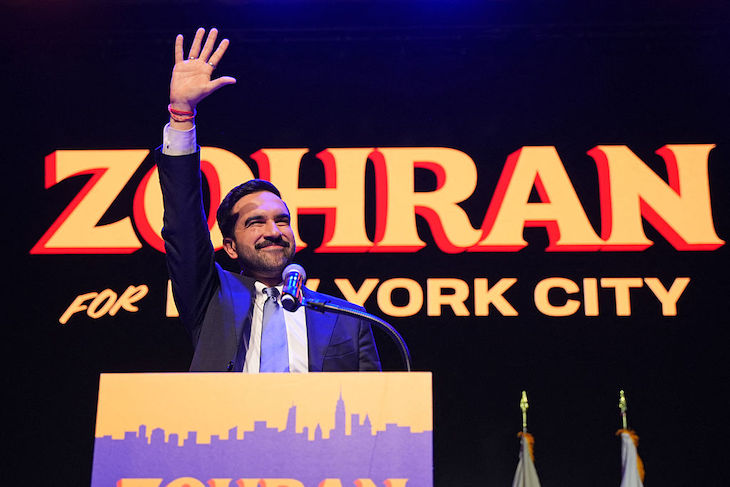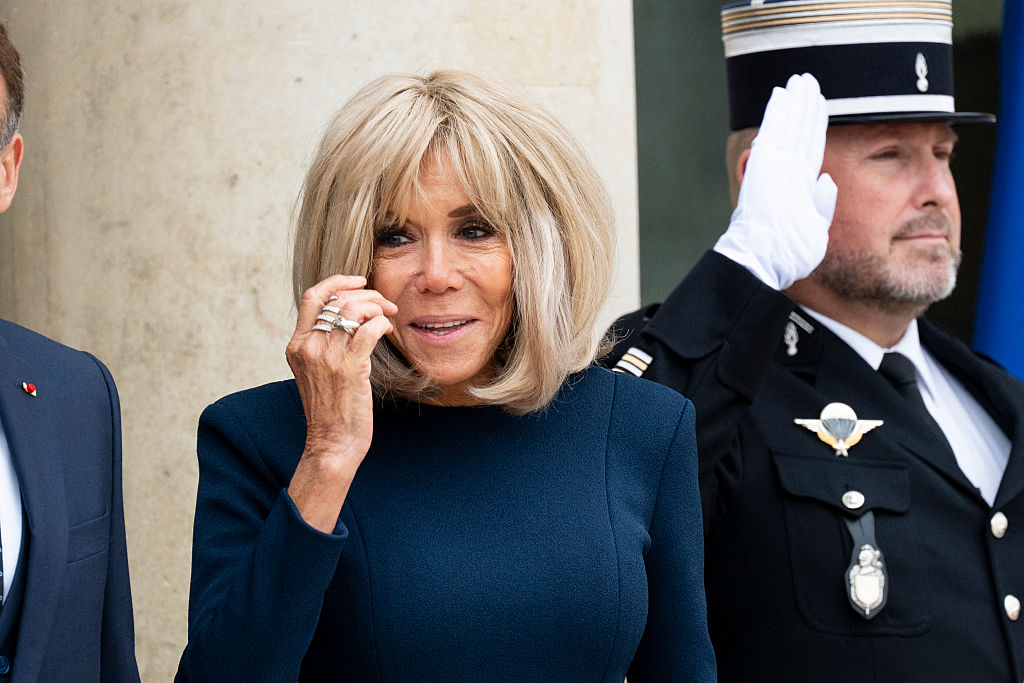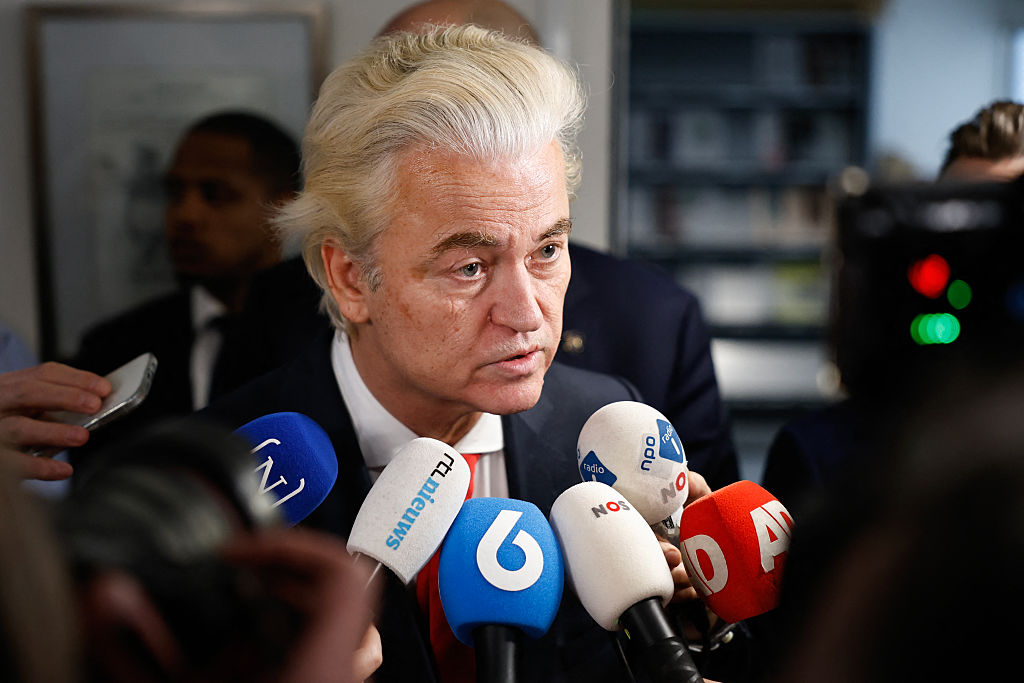This evening Emmanuel Macron will almost certainly be searching for his fifth prime minister since January last year. François Bayrou’s decision to call a vote of confidence in his government looks like a calamitous misjudgment, one that will plunge France into another period of grave instability. Comparisons are being drawn with the tumult of the Fourth Republic when, between 1946 and 1958, France went through more than 20 governments.
Bayrou’s coalition government has limped along this year, achieving little other than creating more disenchantment and contempt among the long-suffering electorate. The French are fed up with their political class.
Above all, they’re sick to the back teeth of their president. It was Emmanuel Macron’s decision to call a snap election in June 2024 that kickstarted the chaos. And to think he did it for “clarification.”
An opinion poll last week reported that Macron’s approval rating has hit a record low: just 15 percent of the country think he is doing a good job. Who are these 15 percenters? How can any voter cast an eye over their crumbling country and conclude that France is in a better state economically and socially than it was in 2017?
Across the political spectrum calls are growing for Macron to resign. From Marine Le Pen on the right to Jean-Luc Mélenchon on the left, and including veteran centrists such as Jean-François Copé, a minister in the government of Jacques Chirac. They believe the only way France can begin to rebuild is with a new president. So do the majority of the people; a weekend opinion poll reported that 58 percent believe Macron should resign in the event Bayrou loses his vote.
Were Macron a man of his word he would step down. In an exchange in 2019 with a group of intellectuals, he criticised previous presidents who stayed in their posts despite losing the confidence of voters in legislative elections.
The French are fed up with their political class
“The president of the Republic should not be able to stay (in office) if he had a real disavowal in terms of a majority,” said Macron.
The president’s parliamentary majority was slashed in the 2022 election when his party lost 105 seats. In last year’s snap election, they hemorrhaged a further 95.
The president still struts around the international stage, exchanging hugs and handshakes with other equally inept European leaders. But outside Western Europe no one takes Macron seriously. Not Trump, not Xi, not Putin, not even Tunisia.
Last week a Tunisian with a history of drug abuse and violence rampaged through Marseille, stabbing several people with a knife as he screamed “Allahu Akbar.” Police shot him dead. The Tunisian government is outraged, calling it “an unjustified killing” and demanding an investigation into the actions of the policemen.
Authoritarian regimes issue such provocative statements because they know Macron won’t respond. Tunisia, like Algeria – which in the last 12 months have thrown a French journalist and a Franco-Algerian writer in jail – have no respect for the president of the Republic.
With every day that Macron stays in office, France’s international standing drops another notch. But he insists that he won’t resign.
In that case, what are the alternatives to France’s political impasse, assuming Bayrou does lose his vote of confidence this evening? Macron could dissolve parliament and call fresh elections, which is what Marine Le Pen wants. But then she would, knowing that the opinion polls put her National Rally party way in front of its rivals.
Last week, former president Nicolas Sarkozy said that legislative elections were the “only solution.” He also legitimatized Le Pen, declaring that the “National Rally is a party that has the right to stand in elections… in my view, they belong to the Republican spectrum.”
It’s going to be a week of extreme turbulence in France
Last month Macron declared that fresh elections aren’t the answer. His preference is to cobble together a third coalition government. Having tried a center-right Premier (Michel Barnier) and a centrist in Bayrou, he’s said to be considering a prime minister from the left.
The name on commentators lips is Olivier Faure, the leader of the Socialist Party. He and Macron know each other well, to the point of using the informal “tu” when addressing each other.
You might consider it odd that Macron would turn to a Socialist. This is the party whose representation in parliament has nosedived from 331 seats in 2012 to 66 last year. Their presidential candidate in the 2022 election, Anne Hidalgo, polled 616,478 votes (1.7 percent), 200,000 fewer than the Communist candidate.
Then again perhaps it isn’t surprising. Macron may have sold himself to the public as a centrist when he launched his En Marche! party a decade ago, but he is at heart a Socialist. He admitted it to a summit of business leaders in 2014, when as the Economy Minister in Francois Hollande’s government, he told his audience: “I am a Socialist… I stand by that.”
In effect, France has been governed by a Socialist since 2012. Between them Hollande and Macron have led the Republic to rack and ruin. Now there is the prospect of a Socialist prime minister.
Among the measures Faure has announced in the event he becomes PM are a reduction of the retirement age from 64 to 62 and the creation of a 2 percent tax on assets worth more than €100 million ($117 million).
It’s going to be a week of extreme turbulence in France. There is the vote today in parliament and then on Wednesday the people will take to the streets in a protest movement called “Block Everything.”
Do they really need to bother? France is already blocked, thanks to Emmanuel Macron.


























Leave a Reply